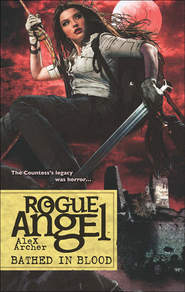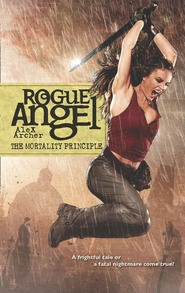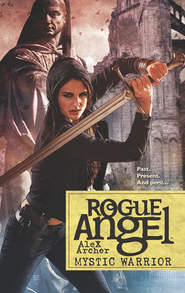По всем вопросам обращайтесь на: info@litportal.ru
(©) 2003-2025.
✖
Celtic Fire
Автор
Год написания книги
2019
Настройки чтения
Размер шрифта
Высота строк
Поля
There were plenty of items of interest—some large, some small—but what Annja loved about places like this was that each and every one of them had a story to tell. It was even more special when one considered they’d all been found locally, either in the town or nearby in Usk. Together they offered a fascinating insight into the people who’d lived and died in this area. She could almost hear the ghosts of the Roman legion marching down the street toward the amphitheater, a few good men so far from their own homeland. That was why she loved what she did.
The sound of her cell phone broke the silence of the room.
Both members of staff turned toward her, both smiling as she shrugged sorry.
The screen displayed Garin’s name. She hit the refuse button to end the call before it began. He could leave a message and she’d return his call—assuming it was anything worth returning—when she was done.
No sooner had the phone fallen silent than he called again.
She killed it on the first ring only for him to call back again.
“Someone really wants to talk to you,” the woman said.
Annja answered. “Persistent, aren’t you?” she whispered, heading back outside. “Twice in two days? Should I be worried or flattered?”
“You should be moving. Fast.”
“Should I now? Why might that be? Thinking of paying a visit, after all?”
“It’s Roux. He needs us.”
That changed things.
“What’s wrong?”
“We’ve got to get to a place called St. Davids yesterday. I’m picking the old man up. We’ll be there by lunchtime.” His voice sounded strange and there was a noise in the background she knew should have been familiar.
“What’s going on?” She still found it slightly ironic that a man who was more than five hundred years old could call anyone else an old man.
“No idea, but something has really upset him. And you know what he’s like. He doesn’t upset easy. See you soon.” The call ended, leaving Annja with a growing sense of unease. Garin was right; Roux wasn’t rattled easily, so if something had got to him it had to be serious. It was equally unnerving that he’d used Garin as a messenger boy. What kind of trouble was Roux in?
Chapter 11 (#ulink_bd17bef0-d952-59ba-a16f-35aaecf906c8)
Annja was on the road again.
So much for being on holiday.
But weirdly, though, the thought of saying no never occurred to her; that was just the way it was. Garin said Roux was in trouble, what else was she going to do? She owed the pair of them more than she’d ever admit, technically everything her life had become. That the older man had recovered every shard of Joan of Arc’s shattered sword was down to Roux, and that she’d ever walked away from la Bête du Gévaudan was down to Garin’s timely arrival. The man sure knew how to make an entrance.
The manager of the hotel hadn’t batted an eye when she asked to extend her stay a week and paid for the room up front. Although he had cocked a curious eyebrow at her bags, she’d explained how she was making an unplanned detour and expected to be back in a day or two tops.
The landscape changed as she traveled. Mile by mile it became more mountainous and increasingly spectacular. She caught the occasional glimpse of the huge white turbines of wind farms as the road curved and coiled toward the urban sprawls of Newport, Cardiff and Bridgend before she reached the industrial landscape of Port Talbot. There she was greeted by a huge gout of flame blazing brightly from one of the chimneys of the steelworks. It was a different world.
Eventually the motorway came to an end and the road narrowed considerably. The cars around her slowed without any warning signs, their drivers used to the slower pace of life and the end of the motorway regardless of the speed limit. She followed the road from village to village rather than town to town; houses were dotted across the hillsides, a few huddled together in small clusters. She had to pull over to the side of the road more than once to double-check the map to be sure she was still on the right road as every few miles it became less and less convincing. The landscape, though, was breathtaking and more than made up for the permanent feeling of being lost. Lots of signposts she saw were in duel languages—English and Welsh—though the Welsh seemed to lack a lot of vowels. At last she skirted the fringes of Haverfordwest and picked up another winding road that would take her to St. Davids.
Her cell phone rang again: Garin.
She pulled over to the side of the road to take the call.
“If you take the second exit at the next island you’ll see a small private airfield on your right. If you pull in you can give us a ride.”
“That really is creepy, you know.”
Вы ознакомились с фрагментом книги.
Приобретайте полный текст книги у нашего партнера:
Приобретайте полный текст книги у нашего партнера:











